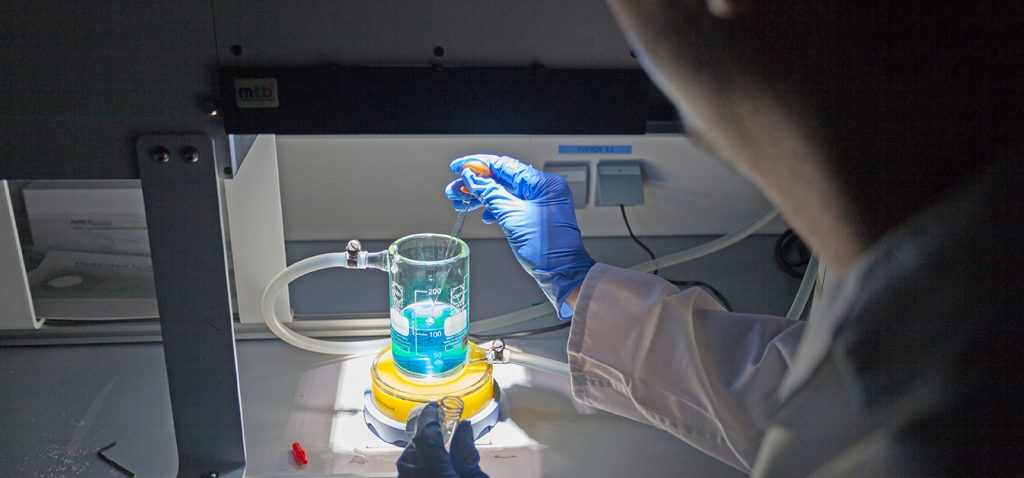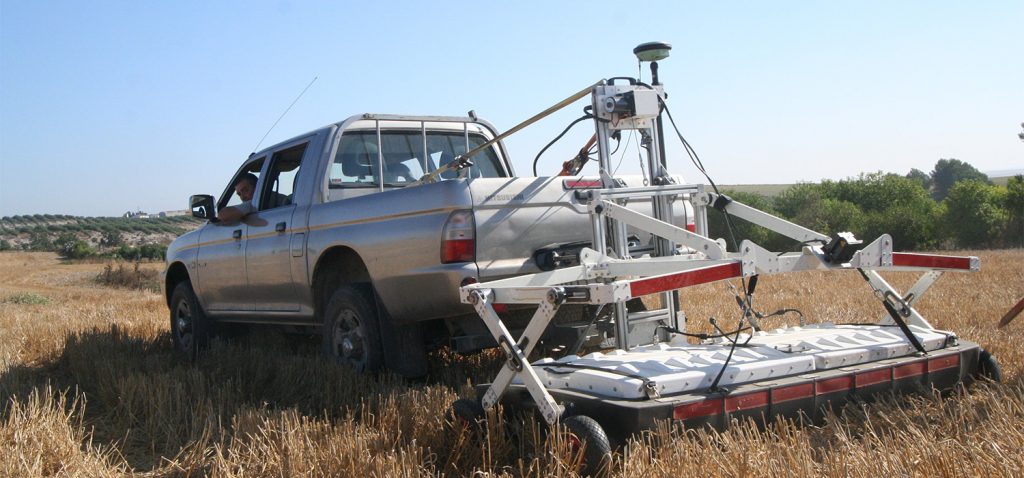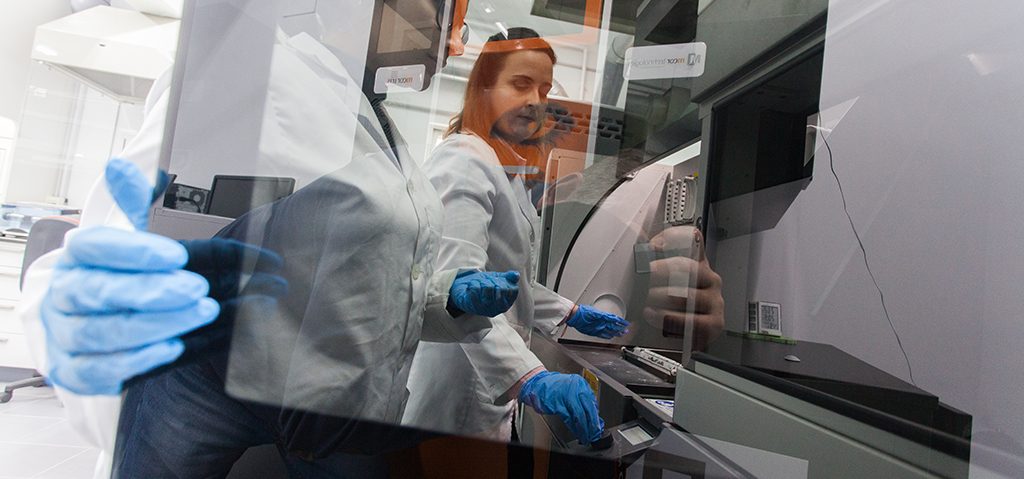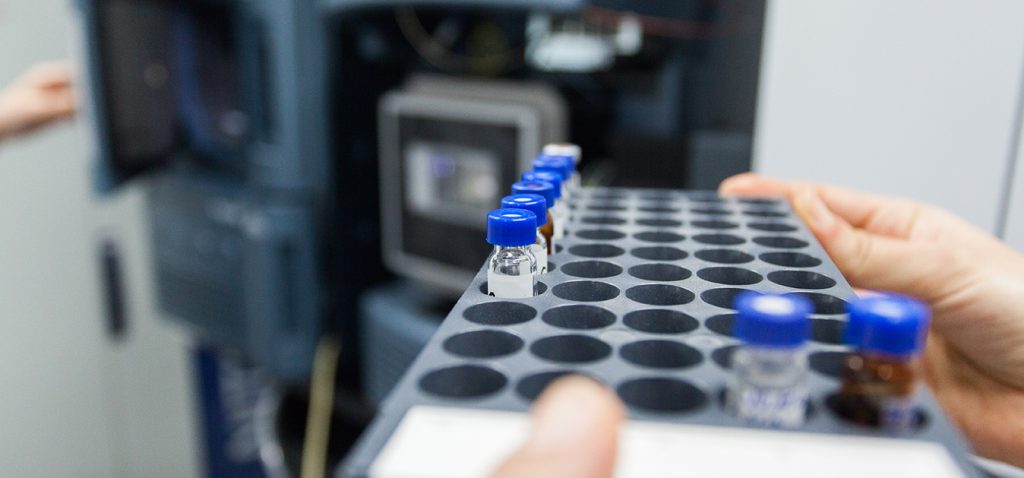UCA, first university in scientific-technical equipment projects with a total of 46 projects financed 11 November 2018
It is also second in funding with more than € 12.5 million obtained in this demanding competitive call of the Ministry of Science, Innovation and Universities through the State Plan for Scientific and Technical Research and Innovation 2017-2020
The Ministry of Science, Innovation and Universities has granted the University of Cádiz 12,578,155 euros for the acquisition of scientific-technical equipment through the State Subprogram of Research Infrastructures and Scientific-Technical Equipment of the State Program of Knowledge Generation and Strengthening Scientific and Technological System of R+D+i, within the framework of the State Plan for Scientific and Technical Research and Innovation 2017-2020. In this way, UCA has become the first Spanish university with the largest number of projects supported by the Ministry with a total of 46 and is also the second university institution in the country in funding in this national call in competitive concurrency regime.
This line of financing projects of a periodic nature is intended to facilitate universities and research centers the purchase of large scientific and technological infrastructures that can not be absorbed in other calls and are difficult to finance from own resources. In this grant program, researchers at the University of Cádiz have notably increased the amount achieved in previous calls, thus consolidating the positive evolution of recent years in attracting funds in competitive calls. In this way, UCA is placed at the head of the entities with the greatest number of projects, as well as the amounts obtained. Specifically, UCA is the second university -after Granada- with the highest funding in Spain

This result is the consequence of many hours of rigorous work in the preparation of the files. In the drafting and management of the projects have been involved dozens of researchers and workers of the Administration and Services Staff of the four university campuses of UCA, which have also had the coordination of the Central Research Services of the institutes of university research and the Vice-Rector for Research of the University of Cádiz. The equipment obtained will reinforce the scientific infrastructures in projects assigned to all areas of knowledge (Sciences, Social and Legal Sciences, Health Sciences, Humanities and Engineering) and will significantly increase the capacities and scientific production of UCA.
The important volume of resources obtained by the researchers of the University of Cádiz in this new call for public and competitive funding collection will encourage the implementation of new scientific-technical equipment that will contribute to improve the scientific results of the research teams of UCA and to strengthen the strategies of innovation and transfer, in connection with all the actors and agents of the different socio-economic, business, industrial and cultural sectors of the environment

Most relevant equipment
The important funding received will improve and give even more quality to the infrastructure of the different scientific aggregations of the University of Cádiz. This is the case, for example, of the Central Research Services and the Science Institutes. The new equipment ensures the availability of innovative technological resources and last generation for the determination of properties of materials and compounds. The results obtained will allow the University of Cádiz to be located in the most advanced frontier of knowledge and innovation in aspects related to Electron Microscopy or Nuclear Magnetic Resonance. Thus, the university research institutes of Electron Microscopy and Materials (INMEYMAT), of Biomoléculas (INBIO), of Marine Research (INMAR) and of Viticulture and Agri-Food Research (IVAGRO) will have the most updated and competitive infrastructures that exist in the market to research in Science and Technology, allowing them to increase the quality of their research. 
Of special relevance has also been the concession of an important infrastructure to give the most avant-garde technology to the Central Service of Marine Crops of the University of Cádiz in the matter of sustainability. This plant, of approximately 1,000 m2, consists of two services (Production and Experimentation with Marine Fishes and Production and Experimentation with Microalgae), as well as a Biological Samples Control Laboratory and a Seawater Collection and Distribution Unit, located in the exterior of the building. The equipment obtained will change the system of circulation open to closed circulation (RAS) in most of the Crop Units, converting them, in this way, into independent circuits. Not only can be controlled in a specific and precise way the culture conditions (different temperatures, salinities, dissolved oxygen, absence of pathogens, pH, etc.), but the quality of water quality parameters will be guaranteed as an essential factor in animal welfare. In addition, the implementation of RAS systems will save the energy expenditure of a non-sustainable resource such as electricity supply. With the start-up of the hybrid solar panels, the energy obtained will be the one used in the maintenance of these closed circuits.
The funding obtained will also reinforce the research in the Humanities areas of the University of Cádiz. In particular, the facilities of the Geodetection Unit of UCA will be improved, which is currently developing important works in sites such as Hasta Regia or the Phoenician site of Doña Blanca. It has also been given scientific infrastructure to provide a mobile archaeological laboratory to the Institute of Maritime History and Archeology (INHARMAR). The researchers who develop their activity in it already work in such important areas as Baelo Claudia or Gadir. In addition, the Institute of Applied Linguistics (ILA) strengthens its scientific capacity with the creation of an Experimental Linguistic Unit, equipping itself with different techniques for the investigation of language from the perspectives of articulatory production and acoustic-perceptual processing. The objective is to advance in the measurement of the information flow-time of reaction or fixation originated by the different phenomena of the language. This will lead to a comprehensive experimental approach to the functioning of languages with an important projection to the fields of scientific-technical research and knowledge transfer.
In December 2016, the creation of the Research Institute in Biomedical Sciences of the University of Cádiz (INiBICA) was formalized. In the first call where it has been possible to request scientific infrastructure, a total of eleven projects have been pursued for a value close to 2 million euros. The last generation equipment for proteomic analysis is noteworthy, which will strengthen the Institute’s competencies in this area. This infrastructure will increase the capabilities of the biomedical researchers of UCA and the Andalusian Health Service by having the most advanced equipment for studies in disciplines such as neurosciences, onco-hematology or inflammation

In relation to the areas of research in Engineering linked to the scientific and technological work of the Higher School of Engineering (Campus of Puerto Real) and the Higher Polytechnic School of Algeciras (Campus Bahía de Algeciras), funding has been obtained to reinforce the research activity in the fields of the 4.0 digital industry and sustainable energy engineering, which will have an important work of transfer to the business sector of the province of Cádiz.



